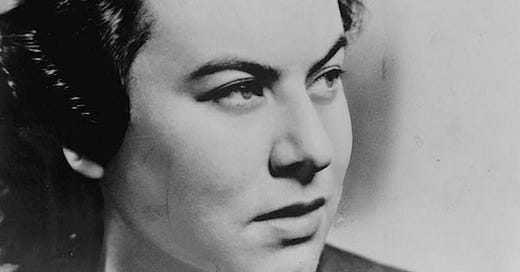I lived in the first century of world wars.
Most mornings I would be more or less insane,
The newspapers would arrive with their careless stories,
The news would pour out of various devices
Interrupted by attempts to sell products to the unseen.
I would call my friends on other devices;
They would be more or less mad for similar reasons.
Slowly I would get to pen and paper,
Make my poems for others unseen and unborn.
In the day I would be reminded of those men and women
Brave, setting up signals across vast distances,
Considering a nameless way of living, of almost
unimagined values.
As the lights darkened, as the lights of night brightened,
We would try to imagine them, try to find each other.
To construct peace, to make love, to reconcile
Waking with sleeping, ourselves with each other,
Ourselves with ourselves. We would try by any means
To reach the limits of ourselves, to reach beyond ourselves,
To let go the means, to wake.
I lived in the first century of these wars.A note: I am using the version of “Poem” that appears in Rukeyser’s 1968 The Speed of Darkness. A lot of the versions of this poem that you find on the internet will add the first line as a parenthetical to the title, which makes a choice the poet did not make herself so I’m omitting it here. Similarly, most places attach the hanging line on the end of the previous line, which may have been exactly what Rukeyser wanted. But I suspect she was sent a note of how the poem would print and understood that the line would be hanging off and chose to keep it that way. I want to analyze that choice, not any future correction of it.
The poem is 20 lines, indicated by Rukeyser’s use of capitals to distinguish lines. She doesn’t do this throughout the book, so it’s clearly intentional to highlight that dangling line as different. There isn’t any clear meter — there isn’t any uniformity in syllable count or foot measure — but the form is vaguely reminiscent of a pantoum with some of its repetition and the matching first and final lines.
This poem's start has a frantic feel due to the flood of declarative sentences. There is a stream-of-consciousness quality that comes from the repetition of “more or less.” We are listening to the speaker work out how she feels in real-time. There is a mercy in this language. Both the speaker and her friends are given wiggle room rather than an outright declaration of madness.
More repetition in the use of conjunctions: “unseen and unborn,” “pen and paper,” and “men and women” really emphasizes that the frenzy is far-reaching.
Rukeyser uses the visibly and sonically shorter line “Slowly I would get to pen and paper” to slow the reader down. We are following our speaker as she tries to make sense of the world around her through her writing. The tone becomes critical in the broken line, in which she highlights the tribalism leading to many of humanity’s problems. Notice that in that dangling line, the speaker doesn’t say “unimaginable” but instead “unimagined.” Like we don’t even fucking try.
The turn of the poem happens as night comes. The focus shifts from being on the madness of the world to the personal struggle that is faced when we are alone with ourselves. The speaker states there is a “waking with sleeping.” This waking is more of a metaphorical awakening. We find sense and reason within our dreams as if peace (true peace with both ourselves and others) is only achievable in our sleep. Further evidence that the poem shifts from external to internal is the shift in language from the use of “wars”, “newspapers”, “calls”, and “vast distances” to the internal through the use of the word “ourselves” five times in two lines. This mirrors the way we internalize the trauma of the world around us.
This idea is reinforced in the slight change in the echoed line at the end. The speaker no longer calls them “world” wars. Now they are “these” wars. They are here, present and part of us.





